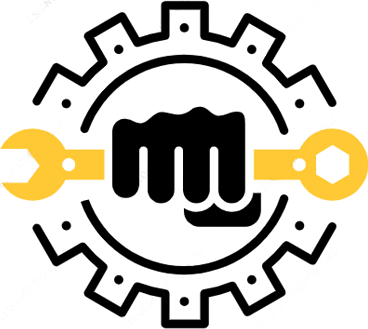Here are 20 questions with answers that can help a fresher prepare for an SEO Executive interview:
1. What is SEO?
Answer: SEO stands for Search Engine Optimization. It is the process of optimizing a website to improve its visibility and ranking on search engine results pages (SERPs).
2. Why is SEO important for a website?
Answer: SEO is important because it helps increase the visibility of a website, driving more organic traffic, which can lead to higher conversions and revenue.
3. What are the main components of SEO?
Answer: The main components of SEO are on-page SEO, off-page SEO, and technical SEO.
4. What is on-page SEO?
Answer: On-page SEO refers to the optimization of individual web pages to rank higher and earn more relevant traffic. This includes optimizing content, HTML source code, and meta tags.
5. What is off-page SEO?
Answer: Off-page SEO refers to actions taken outside of your website to impact your rankings within search engine results pages. This primarily involves link building.
6. What is a backlink?
Answer: A backlink is a link from one website to another. Backlinks are important for SEO because they signal to search engines that others vouch for your content.
7. What are keywords in SEO?
Answer: Keywords are specific words or phrases that users enter into search engines. They are critical in SEO as they help determine which queries a website will rank for.
8. How do you perform keyword research?
Answer: Keyword research is performed using tools like Google Keyword Planner, SEMrush, or Ahrefs. It involves finding relevant keywords with good search volume and low competition.
9. What is a meta title?
Answer: A meta title, or title tag, is an HTML element that specifies the title of a web page. It appears on the search engine results page as the clickable headline for a given result.
10. What is a meta description?
Answer: A meta description is a brief summary of a web page’s content that appears under the meta title in search engine results. It helps inform and entice users to click on your link.
11. What is a sitemap?
Answer: A sitemap is a file where you provide information about the pages, videos, and other files on your site, and the relationships between them. Search engines read this file to crawl your site more effectively.
12. What is robots.txt?
Answer: Robots.txt is a file used to instruct web robots (typically search engine robots) on how to crawl and index pages on their website.
13. What are alt tags?
Answer: Alt tags (alternative text) are used in HTML to describe the appearance and function of an image on a page. They help improve accessibility and SEO.
14. What is the difference between organic and paid results?
Answer: Organic results are the natural search results that appear due to their relevance to the search term, while paid results are advertisements that appear at the top or bottom of the SERPs.
15. What are Google’s ranking factors?
Answer: Google’s ranking factors include content quality, keyword usage, site speed, mobile-friendliness, backlinks, and user experience, among others.
16. How do you stay updated with the latest SEO trends?
Answer: Staying updated with the latest SEO trends can be done by following industry blogs (like Moz, Search Engine Land), attending webinars, and participating in SEO forums and communities.
17. What is a 301 redirect?
Answer: A 301 redirect is a permanent redirect from one URL to another. It passes the majority of the link equity (ranking power) to the redirected page.
18. What is a 404 error?
Answer: A 404 error occurs when a page cannot be found on a server. This can happen if the page has been deleted or the URL has been changed without proper redirection.
19. What is domain authority?
Answer: Domain authority is a search engine ranking score developed by Moz that predicts how well a website will rank on SERPs. It ranges from 1 to 100.
20. How do you measure SEO success?
Answer: SEO success is measured using metrics such as organic traffic, keyword rankings, conversion rates, bounce rates, and backlinks. Tools like Google Analytics and Google Search Console are often used for this purpose.
These questions and answers should provide a solid foundation for a fresher preparing for an SEO Executive interview.




Leave a Comment